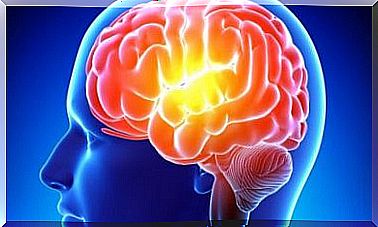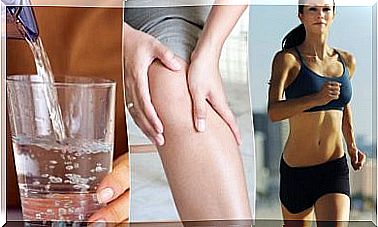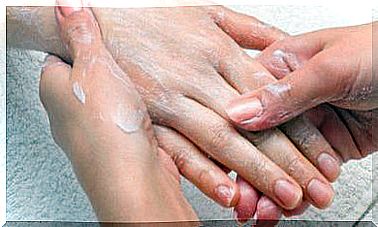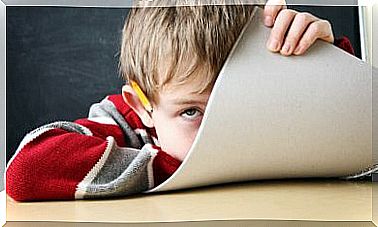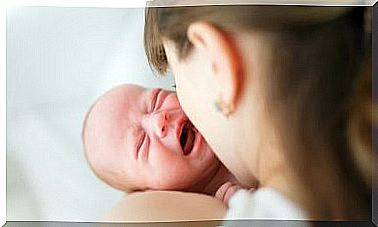Physical Pain And Emotions: What Is The Connection Between Them?
Sometimes the pain is not related to a physical discomfort, but to some kind of emotional problem. Find out in the following article why they are related and how to recognize them.

Although it is almost always ignored, there could be a relationship between physical pain and emotions. The latter could be essential when establishing certain parameters to analyze the former.
Mind and body constantly work together. This reason would explain why many feelings are manifested through ailments in different parts of the body.
Research has determined that chronic pain cannot just be caused by physical injury. Many types of illness can occur due to constant submission to stress and anxiety, as suggested by this study by Dr. VF Moreira.
In it, the presence of chronic stomach pain is established due to problems related to these psychological disorders , although they can also lead to other ailments.
In the same way, this research carried out by Dr. Piqueras Rodríguez from the Miguel Hernández University (Elche) , states that there is a correlation between negative emotions and mental and physical health.
Physical pain and emotions: most common conditions
Some of the most common symptoms are:
Headache

Headaches and common migraines are closely related to constant stress and other emotional factors, according to the Mayo Clinic.
Therefore, its recurrence may indicate an overload in daily tasks or constant exposure to unpleasant situations.
The best solution in these cases is to take a little time to practice some relaxation techniques or exercises.
Neck Pain
Neck tension is not always the result of poor movement or physical effort. In fact, constant muscle tension from stress can lead to torticollis, according to this report by Dr. Trivedi of the University of Texas Southwestern Medical Center.
If so, it is best to identify what worries you and try to carry out relaxation techniques. In these cases, you can also consult a physiotherapist, who will help you feel better.
Shoulder pain
Like neck pain, shoulder pain is often related to tension or poor posture. This can be the cause of too many hours sitting in the work chair without rest.

Being aware of such a situation, it is best that you try to relax. If you have problems, try to focus on the positive side of the situation and do not constantly dwell on the problem.
Pain in the upper back
Back pain that comes on over and over again can also be caused by stress. Thus, as with the previous pains, you must monitor your postures, especially during work hours.
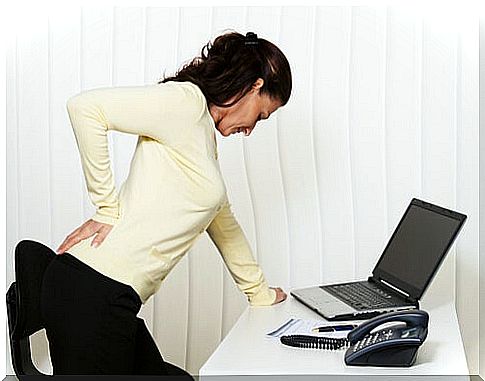
For this reason, and so that your back is not overloaded, try to get up several times during the work day, even to go to the bathroom.
It is recommended that you do stretching and, if you can, that you do strengthening exercises, such as swimming or yoga. Your back will thank you.
Pain in the hips
Did you know that pain in your hips could also be related to your emotions? Any kind of wrong posture in a constant stress situation can be harmful.
It can also happen that you injure yourself while playing sports, especially when running or fast walking. Therefore, try to warm up before heading out to running or going for a walk.
In the same way, it is advisable not to cross your legs when you are sitting. Try to be in a suitable position, and ask, if you need it, recommendations to a specialist to teach you correct postures.
Seek help and don’t let the pain advance
It is common to think that joint pain can be resolved with a few days of rest and non-steroidal anti-inflammatory drugs. However, there are times when this alone is not enough.
If the pains are constant and prevent you from leading a normal life, it is best to go to the doctor. He will study your case and possibly recommend that you visit a psychologist or a physical therapist, as he considers necessary.
It is essential not to downplay this kind of pain. If your mind is fine, your body will be too. Don’t downplay the relationship between physical pain and emotions.
